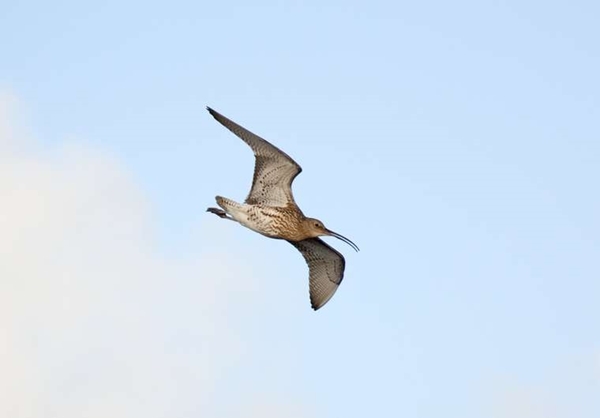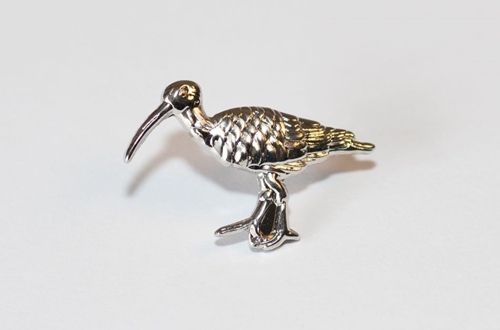
Pic by David Mason
THE curlew’s evocative call is much-loved by generations of Scots, particularly in the south-west and the Borders, where it was often better known as the whaup. Its presence is recorded in place names such as Whaup Knowe in Dumfries and Galloway, while in Berwickshire, inhabitants of the Lammermuirs were nicknamed whaups. Without concerted effort to save the curlew, however, it may soon be lost to many parts of Scotland.
There are eight species of curlew worldwide, two of which are assumed to be extinct. Of the six remaining, three are at risk of extinction including the Eurasian curlew, which inhabits Britain. Listed on the IUCN Red List of Threatened Species, the UK has lost almost two thirds of its curlews since 1994. In England, there are now just 300 curlew nests south of Birmingham.
The Game & Wildlife Conservation Trust (GWCT) is actively involved in curlew conservation, both north and south of the border, through initiatives like Action for Curlew, the AEWA Eurasian Curlew International Working Group and, in Scotland, Working for Waders. Suitable habitat and farming practice both play a central role in wader conservation and substantial numbers of waders including curlews still return every spring to Auchnerran, the GWCT Scottish Demonstration Farm on Deeside.
Much of the Trust’s research on the farm assesses the different impacts made by land use. Equally, a key component of its work is around predator management, promoting an open, honest discussion about which species should be controlled and the level of control that is appropriate.
Dr Dave Parish, GWCT Scotland’s head of lowland research, said: “To achieve a significant recovery of curlews across Scotland, predator management can often provide the most immediate response. Habitat management can take much longer to yield results and be particularly challenging if not deployed in conjunction with predator control. We must also recognise that simply relying on the status quo for legally protected species, which may otherwise be seriously predating endangered species such as curlew, needs to be challenged.
“The concept of adaptive management, where trials and monitoring can support a wide range of cases - such as the recovery of a threatened species or constraining the impact of an overabundant species - is well established around the world.
“April 21st is designated World Curlew day - a grass-roots initiative, supported by major environmental organisations, to raise awareness of the plight of curlews and to encourage activities to help them. We cannot simply preside over extinction and we must take the opportunity to assess all practical options at our disposal to safeguard the future of this wonderful species.”

Show your support with our Curlew Supporters Badge
You can help us get practical curlew conservation advice to those on the ground by buying one of our brand new curlew pin badges. We're offering FREE delivery (£2.50 saving) when you buy a Curlew supporters badge for just £9.99.
£5 from each badge goes to our Action For Curlew project, which is helping to provide advice to farmers, landowners and gamekeepers on the action they can take to reverse the alarming decline in curlew numbers.
Buy now >
Notes to editors
The Game & Wildlife Conservation Trust is an independent wildlife conservation charity which carries out scientific research into Britain’s game and wildlife. We advise farmers and landowners on improving wildlife habitats. We employ 22 post-doctoral scientists and 50 other research staff with expertise in areas such as birds, insects, mammals, farming, fish and statistics. We undertake our own research as well as projects funded by contract and grant-aid from Government and private bodies. The Trust is also responsible for a number of Government Biodiversity Action Plan species and is lead partner for grey partridge and joint lead partner for brown hare and black grouse.
For information, contact:
Playfair Walker
Telephone: 0131 445 5570
Email: richard@playfairwalker.com